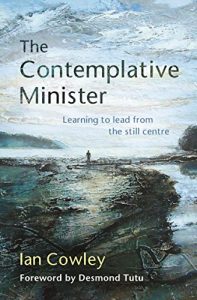There was a time where Christian ministry offered the opportunity to spend your life in the study of God's word, in reading and reflection, in prayer and sermon preparation, and in the quiet and faithful pastoral care of a community. The world has changed, and with it most of the expectations that govern church appointments. These days there are very few jobs in full time ministry which do not require a heroic combination of stamina, multi-tasking and change management.
This book gives practical advice on how to nurture faith and a sense of calling amid the hectic life that is ministry today. Drawing on his experience of developing and leading training programmes in this area, Ian Cowley assesses the stresses and pressures of the job and shows how to grow into being a 'contemplative minister', prioritising a relationship of deepening love with God. He also offers guidance on leading others into that same relationship, without your own spiritual life running dry.
Ian Cowley, Coordinator of Vocations and Spirituality in Salisbury Diocese, offers direction for contemplative leaders in the 21st century, drawing on his South African roots and the influence of contemplative leaders such as Desmond Tutu. He explains practically how to prioritise a relationship with God and lead others into that relationship, creating a shared ministry to allow the leader to nurture faith and spirituality amid the hectic life that is ministry today.
This book is concerned with the central vocation of those who are called to the ordained ministry. As priests, we are called to be people in whom others may see God. There is a great hunger for God among many people today. This is a hunger which is not just for things about God, for sermons, books, talks and videos, but for God himself. A contemplative minister is someone who is called first of all to God and to his heart of love, so that the world may also know God and his love for all that he has made.
Archbishop Desmond Tutu
Ian Cowley is Vocations and Spirituality Coordinator for the Diocese of Salisbury and since 2010 has led and developed The Contemplative Minister programme in the Diocese, which has been greatly appreciated by many clergy. He has also written The Transformation Principle (2002), Going Empty Handed (1996) and A People of Hope (1993). He has been a parish priest in Natal, South Africa, and also in Cambridge and Peterborough.
This book gives practical advice on how to nurture faith and a sense of calling amid the hectic life that is ministry today. Drawing on his experience of developing and leading training programmes in this area, Ian Cowley assesses the stresses and pressures of the job and shows how to grow into being a 'contemplative minister', prioritising a relationship of deepening love with God. He also offers guidance on leading others into that same relationship, without your own spiritual life running dry.
Ian Cowley, Coordinator of Vocations and Spirituality in Salisbury Diocese, offers direction for contemplative leaders in the 21st century, drawing on his South African roots and the influence of contemplative leaders such as Desmond Tutu. He explains practically how to prioritise a relationship with God and lead others into that relationship, creating a shared ministry to allow the leader to nurture faith and spirituality amid the hectic life that is ministry today.
This book is concerned with the central vocation of those who are called to the ordained ministry. As priests, we are called to be people in whom others may see God. There is a great hunger for God among many people today. This is a hunger which is not just for things about God, for sermons, books, talks and videos, but for God himself. A contemplative minister is someone who is called first of all to God and to his heart of love, so that the world may also know God and his love for all that he has made.
Archbishop Desmond Tutu
Ian Cowley is Vocations and Spirituality Coordinator for the Diocese of Salisbury and since 2010 has led and developed The Contemplative Minister programme in the Diocese, which has been greatly appreciated by many clergy. He has also written The Transformation Principle (2002), Going Empty Handed (1996) and A People of Hope (1993). He has been a parish priest in Natal, South Africa, and also in Cambridge and Peterborough.






